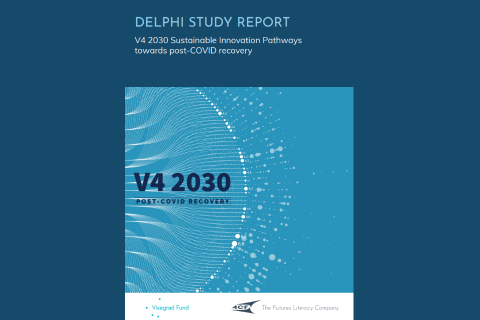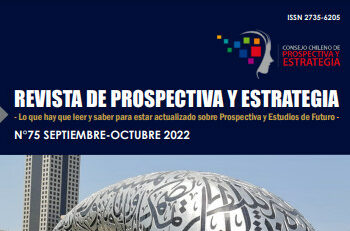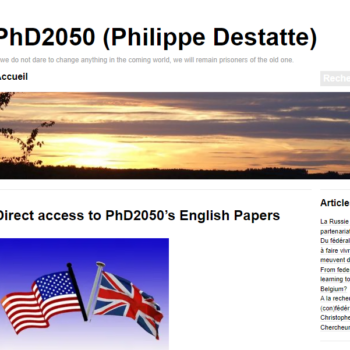
V4 2030 Sustainable Innovation Pathways towards post-COVID recovery
- Posted by Mara Di Berardo
- On 31 October 2022
- 0 Comments
- Delphi study, Poland Node, post-covid, sustainable innovation, Visegrad countries
4CF The Futures Literacy Company, Poland Node of The Millennium Project, together with its partners, the Corvinus University, Palacky University and the University of Economics in Bratislavam recently issued policy recommendations and their implications for the Visegrad Group countries, Czechia, Hungary, Poland and Slovakia, following the results of a Delphi study on potential emergent futures and opportunities that can guide the post-COVID transformation of the Visegrad regions towards desirable sustainable futures, and away from undesirable, unsustainable development trajectories.
The study identified 14 trends that could significantly affect sustainable development in V4 countries and assessed the enablers and blockers of these trends. There were two trends within each of the 7 categories: Geopolitics, Economy, Technology, Environment, Society, Education, and Health.
The wider influence of the trends was considered within the confines of three scenarios:
- Scenario 1 – “Somewhat satisfied” – described a future where most of the EU’s long-term strategic plans progressed relatively well,
- Scenario 2 – “Gritting our teeth” – described a future where the EU had to cope with a cumulation of crises (climate, economic, social) negatively impacting its functioning,
- Scenario 3 – “Watching the dawn” – described a future where democracies around the globe were cooperating for the common good.
Out of the 14 trends, six were assessed as impactful on the V4 region’s future regardless of the considered scenario and were, therefore, selected as most important: Increasing polarisation of societies; Emerging energy sector transitions; Rising popularity of remote hybrid work; Growth of artificial intelligence use in the healthcare industry; Rising popularity of cyberattacks; Growing number of people suffering from mental health issues.
Three other trends that deserve mention due to their critical influence on sustainability in V4 countries include: Increasing disinformation and circulating conspiracy theories; Persisting gap in quality of education and better performing EU states; Deterioration of the rule of law.
A particularly interesting result of the study concerned trend blockers. According to the experts’ assessment, among which Elizabeth Florescu from The Millennium Project who took part to the Delphi study, the blockers that could stop negative trends from developing have a much higher influence on sustainability than the blockers of positive trends. Moreover, the influence of negative trends on the V4 region’s sustainability is much stronger than that of positive ones. A combination of these two facts leads to the conclusion that is highly relevant from a policymaking perspective: the most effective strategy for reaching the desired level of sustainability has to include policies built around the blockers of negative trends.
Read the V4 2030 policy brief: https://4cf.eu/v4-2030-policy-brief/
Read the Delphi Study Report: https://4cf.eu/v4-2030-delphi-study-report/
The project description and links to other documents can be found here: https://4cf.eu/visegrad2030/.



